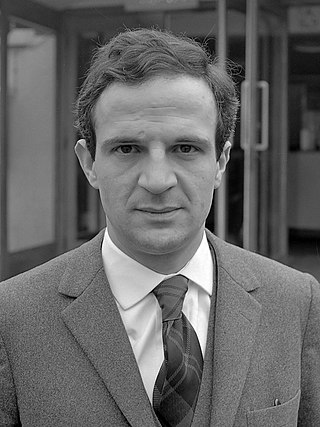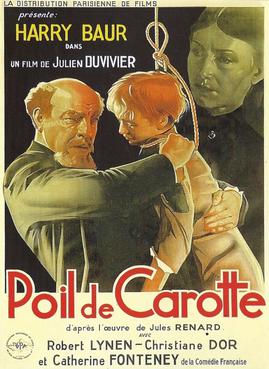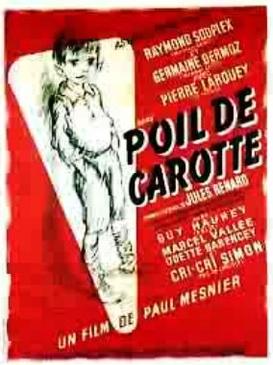
François Roland Truffaut was a French film director, screenwriter, producer, actor, and film critic. He is widely regarded as one of the founders of the French New Wave. After a career of more than 25 years, he remains an icon of the French film industry.

The Prix de Rome or Grand Prix de Rome was a French scholarship for arts students, initially for painters and sculptors, that was established in 1663 during the reign of Louis XIV of France. Winners were awarded a bursary that allowed them to stay in Rome for three to five years at the expense of the state. The prize was extended to architecture in 1720, music in 1803 and engraving in 1804. The prestigious award was abolished in 1968 by André Malraux, then Minister of Culture, following the May 68 riots that called for cultural change.

Victorien Sardou was a French dramatist. He is best remembered today for his development, along with Eugène Scribe, of the well-made play. He also wrote several plays that were made into popular 19th-century operas such as La Tosca (1887) on which Giacomo Puccini's opera Tosca (1900) is based, and Fédora (1882) and Madame Sans-Gêne (1893) that provided the subjects for the lyrical dramas Fedora (1898) and Madame Sans-Gêne (1915) by Umberto Giordano. His play Gismonda, from 1894, was also adapted into an opera of the same name by Henry Février.

Henri-Pierre Roché was a French author who was involved with the artistic avant-garde in Paris and the Dada movement.

Pierre-Jules Renard was a French author and member of the Académie Goncourt, most famous for the works Poil de carotte and Les Histoires Naturelles. Among his other works are Le Plaisir de rompre and the posthumously published Huit Jours à la campagne.

Carrot cake is cake that contains carrots mixed into the batter.
George Walter Stonier or G. W. Stonier was an English critic, novelist and radio playwright, and a literary editor of the New Statesman. He wrote a weekly column for the New Statesman for twenty years until 1961 under the pseudonym William Whitebait. He was an adapter of Gustave Flaubert's Bouvard et Pécuchet, and his radio plays included Ophelia, The Shadow Across the Page, The House Opposite and Chap in a Bowler Hat. He was a contributor to The Observer, The Daily Telegraph, literary journals and Sight & Sound. He was also author of the well-regarded novella Memoirs of a Ghost and of six other books:Shaving Through the Blitz, Shadow Across the Page, Gog Magog, My Dear Bunny, Across London with the Unicorn, and Pictures on the Pavement illustrated by Edward Ardizzone. He was the first to translate Jules Renard's classic tale of an unloved child, Poil de Carotte into English. It was published in 1946 by the Grey Walls Press in an edition illustrated by Fred Uhlman.

Hippolyte Girardot is a French actor, film director and screenwriter. He is the father of actress Ana Girardot.
Robert Lynen was a French actor. A child star of French cinema, he joined the French Resistance during his country's occupation during World War II, was arrested and deported to Germany, and shot by a Nazi firing squad after repeated escape attempts.
Stanley Hochman was an editor for several New York City publishing houses and also a translator of European literature and nonfiction. Hochman's final editorial position was as Senior Editor at the former Frederick Ungar Publishing Company, which was acquired by Continuum Publishing in 1985, subsequently absorbed into Bloomsbury Publishing. Earlier in his career, he had held editorial positions at McGraw-Hill, Walker and Company, and several industrial trade magazines.

The Red Head is a 1925 French silent drama film directed by Julien Duvivier and starring Henry Krauss, Charlotte Barbier-Krauss and André Heuzé. Duvivier remade it as a sound film of the same name in 1932.

The Red Head is a 1932 French drama film directed by Julien Duvivier and starring Harry Baur, Robert Lynen and Louis Gauthier. It is a remake of Duvivier's 1925 silent film The Red Head.

The Red Head is a 1952 French drama film directed by Paul Mesnier and starring Raymond Souplex, Germaine Dermoz and Pierre Larquey. It is based on the novel Poil de carotte by Jules Renard which had previously adapted into films twice by Julien Duvivier before the Second World War.

Henri Bachelin was a 20th-century French writer
Guy Sacre is a French composer, pianist and musical critic.
Patrick Bricard was a French actor and director.











